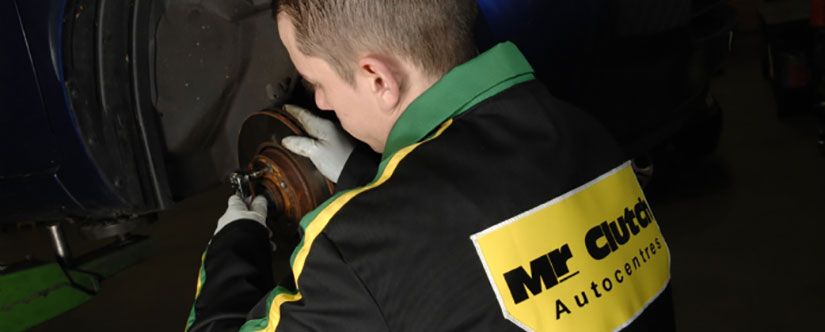Brakes are not the most glamorous part of your car, but keeping them well-maintained is integral to the safe driving and operation of your vehicle. If you need to stop suddenly while going 60 miles an hour, you will need brakes that are kept in optimum condition.
How do you know if you need your brakes checked? Sometimes it happens before the brake light appears on the dashboard. Here are some signs to be aware of:
If you hear a high-pitched squeal in your car, it may be from a tiny indicator located in the braking system; this squeal indicates that the pads need to be replaced. If you hear a grinding sound, it probably indicates that the brake pads have been worn through and the caliper metal is grinding against the rotors.
If you feel that the car is pulling, that is, it feels as if the car is trying to make a turn to the right or the left when you are driving or using the brake, there could be a brake-related problem. One of the calipers might be stuck, causing friction on only one wheel, which could make it pull to one side. Another cause could be a brake hose that has collapsed; this causes the calipers to move in an uneven way when the brakes are used. Another possibility is the brake pads are uneven, applying differing amounts of pressure on different wheels.
If the car pulls, you should get your brakes checked. If the brakes turn out to be working correctly, have the mechanic check for other factors such as worn tires or suspension or alignment problems.
If your brake pads vibrate, the rotors may be warped. The vibrations you feel are from the uneven surface moving against the brake pads. Rotors usually warp when the brakes have been stressed from going down steep surfaces or frequent stops when hauling a heavy load.
If the pedal is “mushy,” and goes to the floor before the brakes connect, the pads could be worn or there could be trouble in the hydraulic system. An air leak, brake fluid leak or air in the line could all be possibilities. Put a light piece of cloth or cardboard under the car and leave it to check for fluid leaks; brake fluid will have a clear colour and be oily. On the other hand, if the brakes seem to grip at even a light touch, dirty brake fluid or moisture-contaminated fluid could be the problem, but the solution is fairly simple; change the fluid or have a mechanic do it for you.
If you have to bring the pedal all the way to the floor and only heavy pressure seems to cause the car to stop, there may be a problem with either the vacuum system or something clogging the brake line; either of these would make it difficult to work the brake properly.
For more information on braking systems click here
